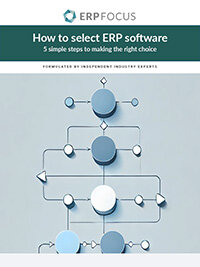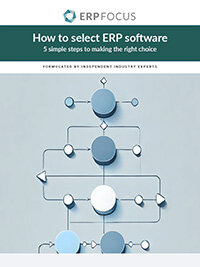ERP Contract: It Really is Rocket Science
If I were creating a list of complex items, I would rank the protein sequence of the human genome, the distribution of matter in the universe, and any ERP contract as the top three, not necessarily in that order. The intent of this article is not to make you a competent negotiator; it is to convince you to make certain you have a software contract lawyer (there are such things), and a purchasing agent familiar with ERP contract negotiations, either on your team, or available in an ERP consulting role. Here are the reasons you need these resources:
1. Contrary to intuition, the software purchase price will be the least important aspect of the negotiation. If you have a mental model that buying an ERP system is just an expensive version of buying Microsoft Office Suite, then you are in for a steep learning curve. The biggest reason to negotiate the lowest possible purchase price is that future maintenance fees are probably a percentage of purchase price.
2. Distasteful though the thought is, the ERP contract must spell out each party’s responsibilities leading up to and after implementation, in an attempt to avoid litigation if the project goes badly. It is a very painful exercise for a project manager to see in writing all of the different ways a project can fail – knowing that the contract language was developed through prior litigation experiences. However, the company’s interests must be protected, and due diligence in this arena must be exercised.
3. Assuming your vendor has annual maintenance fees, be sensitive to the fact that these will impact your total cost of ownership as much as the purchase price. Only subscribe to the level of service you need, and make sure your ERP contract includes provisions protecting you from unreasonable rates of fee escalation. You need careful contract language here, because you are very much wed to this software.
4. If your ERP purchase is cafeteria style – the sum total of a number of module selections you have made – then you likely have left some interesting applications out of the purchase either because you cannot afford them now, or because you do not have capacity to implement them now. Do not be afraid to lock down a future purchase price option on these applications. During negotiation, the vendor is still anxious to cement a deal. Later, you are more or less a captive customer, and there is no incentive for generosity.
5. Make certain you are realistic about how many licenses you need, what the definition of a licensed user is, and how your vendor plans to monitor for compliance.
Do not be surprised if your ERP contract approaches a hundred pages in length, after you include all the addendums. Most of us have neither the training nor the patience to read that much legal jargon, yet we have a responsibility to our company to protect its interest. Get some help.
Free white paper

How to Select ERP
Learn to select your ERP in 5 easy steps by following our expert's advice

Related articles
-

What should be included in your ERP contract?
What things you should negotiate in your ERP contract discussions for success
-

How the right ERP can help you launch a successful omnichannel business
Petersen Zhu, CEO of DigitBridge and Vibes Base, shares how to create a scalable omnichannel stra...
-

4 pieces of essential ERP documentation you should understand
During your ERP project, you will come across a variety of ERP documentation which you must under...

